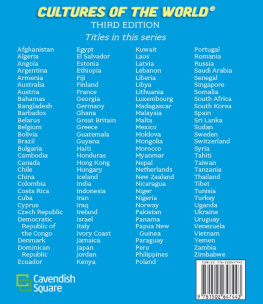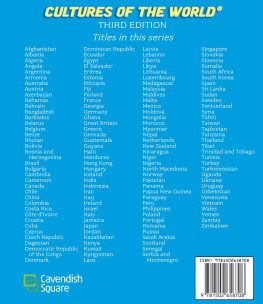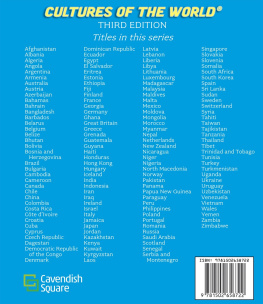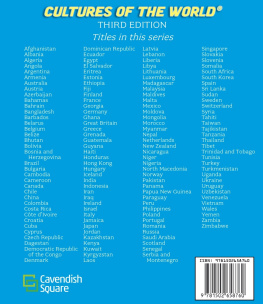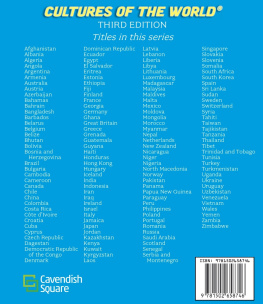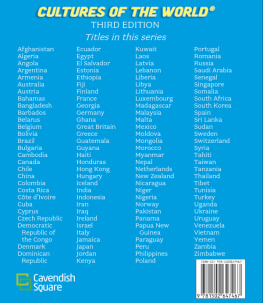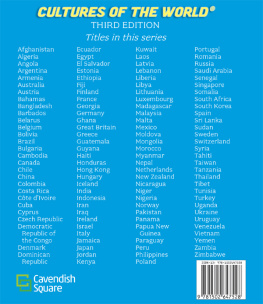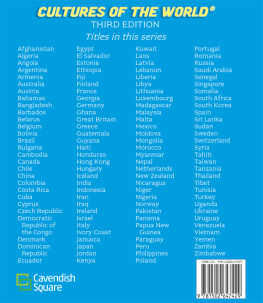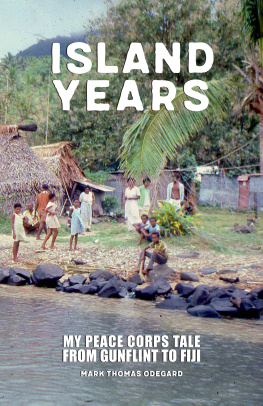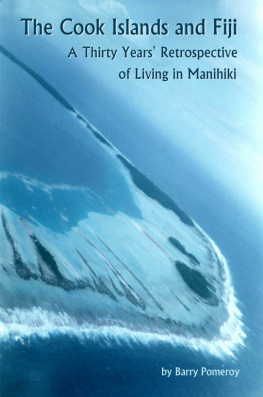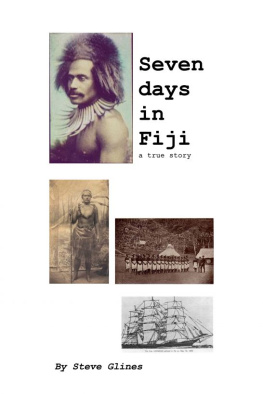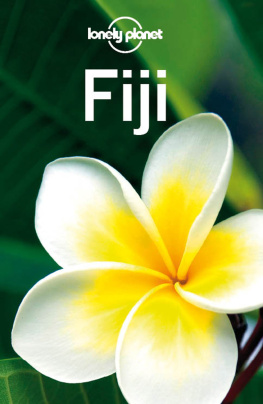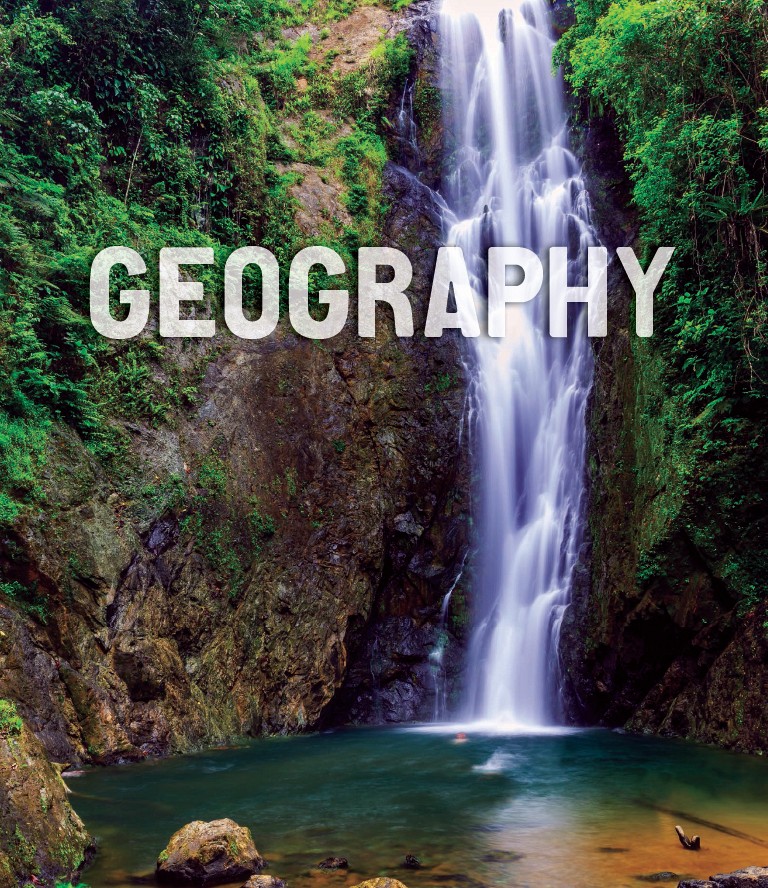
Published in 2020 by Cavendish Square Publishing, LLC
243 5th Avenue, Suite 136, New York, NY 10016
Copyright 2020 by Cavendish Square Publishing, LLC
Third Edition
No part of this publication may be reproduced, stored in a retrieval system, or transmitted in any form or by any meanselectronic, mechanical, photocopying, recording, or otherwisewithout the prior permission of the copyright owner. Request for permission should be addressed to Permissions, Cavendish Square Publishing, 243 5th Avenue, Suite 136, New York, NY 10016. Tel (877) 980-4450; fax (877) 980-4454. Website: cavendishsq.com
This publication represents the opinions and views of the author based on his or her personal experience, knowledge, and research. The information in this book serves as a general guide only. The author and publisher have used their best efforts in preparing this book and disclaim liability rising directly or indirectly from the use and application of this book.
All websites were available and accurate when this book was sent to press.
Library of Congress Cataloging-in-Publication Data
Names: NgCheong-Lum, Roseline, 1962- author. | Nevins, Debbie, author.
Title: Fiji / Roseline NgCheong-Lum, Debbie Nevins.
Description: Third edition. | New York: Cavendish Square, [2020] |
Includes bibliographical references and index. | Audience: Grades 6 and up.
Identifiers: LCCN 2018050567 (print) | LCCN 2018050799 (ebook) |
ISBN 9781502647450 (ebook) | ISBN 9781502647443 (library bound)
Subjects: LCSH: Fiji--Juvenile literature.
Classification: LCC DU600 (ebook) | LCC DU600 .N45 2019 (print) |
DDC 996.11--dc23
LC record available at https://lccn.loc.gov/2018050567
Writers: Roseline NgCheong-Lum; Debbie Nevins, third edition
Editorial Director, third edition: David McNamara
Editor, third edition: Debbie Nevins
Art Director, third edition: Alan Sliwinski
Designer, third edition: Jessica Nevins
Production Manager, third edition: Karol Szymczuk
Cover Picture Researcher: Alan Sliwinski
Picture Researcher, third edition: Jessica Nevins
PICTURE CREDITS
The photographs in this book are used with the permission of: Cover Greg Vaughn/Alamy Stock Photo; p..
Printed in the United States of America

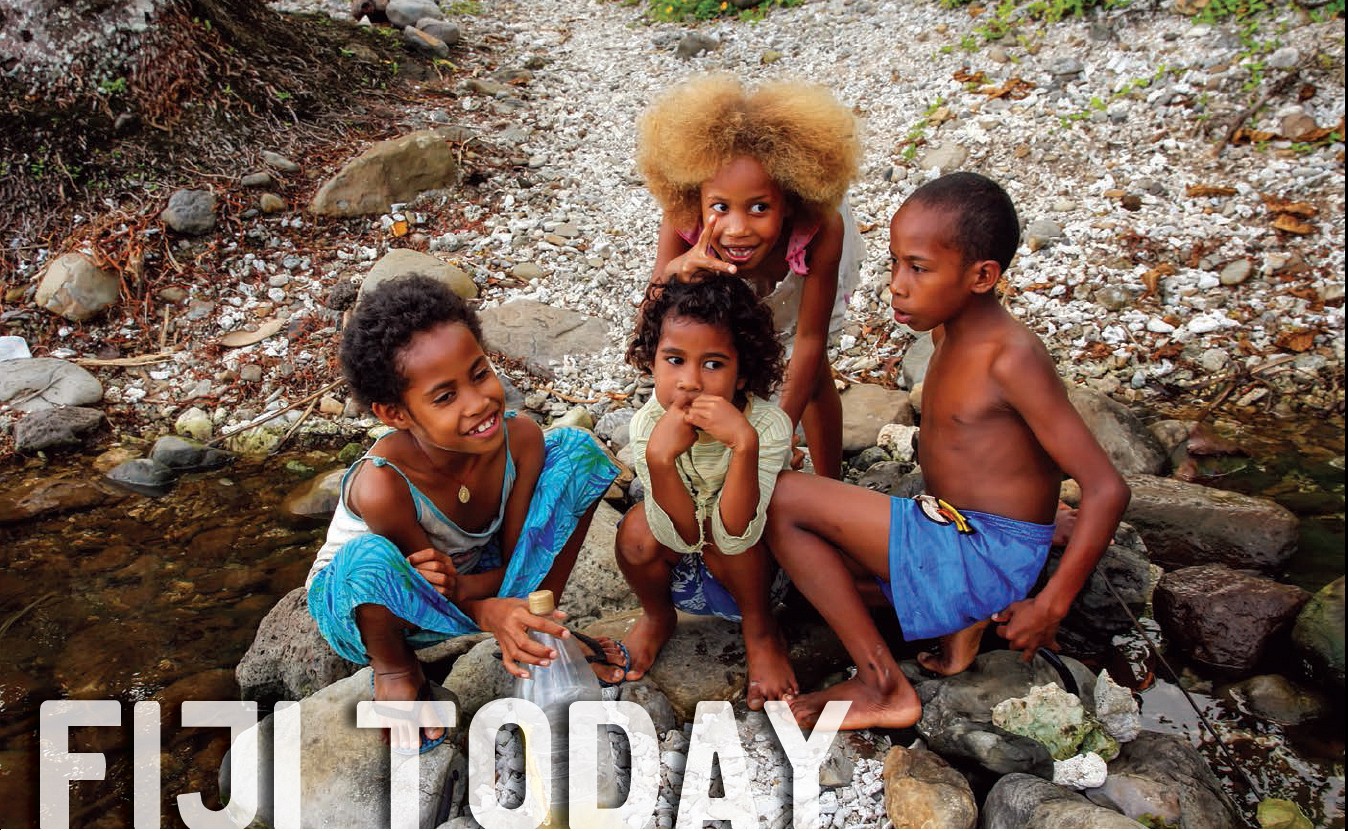
F IJIFOR MANY PEOPLE, THE VERY NAME CONJURES UP A FARAWAY, exotic paradise, one that hides a dark, dangerous secret. For others, its a dream honeymoon or vacation destination. For the people who live there, of course, its simply home. And all of these perceptions are correct, in some way.
Fiji is an island nation in the South Pacific Ocean, an archipelago of some 330 volcanic islands and low-lying atolls. White sandy beaches, shifting sand dunes, colorful coils of reefs teeming with marine life, and impenetrable rain forests all form part of its landscape. Though about 110 of the islands are inhabited, most of the population87 percentlives on one of the two largest islands, Viti Levu and Vanua Levu.
Fiji is far from just about anywhere. Aside from numerous other tiny Pacific islands, its closest neighbor is New Zealand, some 1,300 miles (2,000 kilometers) to the south. The air travel distance, from airport to airport, is even farther. But this isolation in the South Pacific did not prevent humans from finding these islands. As far back as 3500 BCE, seafaring people from Southeast Asia found their way there, and stayed.
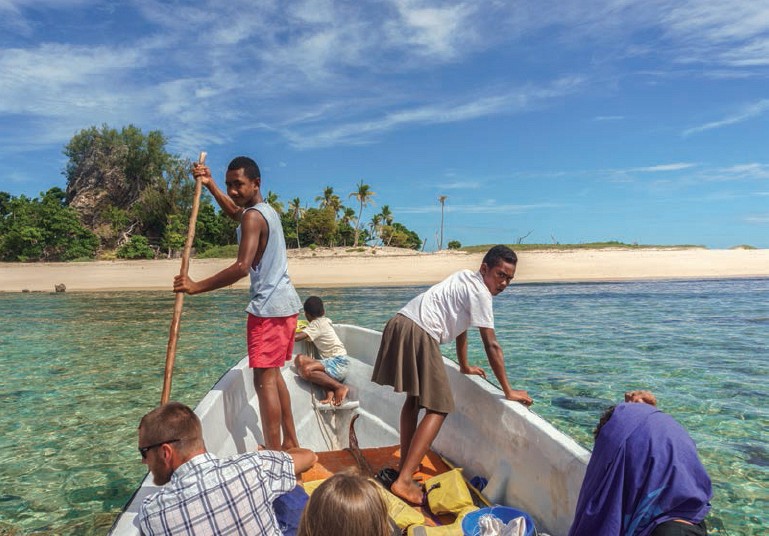
Fijians sail with tourists in the shallow waters off of an uninhabited island.
Today, Fiji is a crossroads of cultures. The population includes indigenous Fijians, now called iTaukei; Indians, ancestrally related to India; Polynesians; Chinese; and Europeans. All lmore or less live side by side as separate groups. While calling Fiji their home, the migrant communities have each retained their ancestral religions, customs, and cultures.
There is one custom, however, that native Fijians have completely let go. Today, they laugh to even think of it. But there was a time, more than a century ago, when Fiji held a terrifying truth in its deepest, darkest heart: cannibalism! Among some tribal groups, it was customary to eat their enemies, particularly following a battle. Indeed, as this ancient tradition was discovered by Europeans, Fiji became a place of both fear and fascination. Nineteenth-century European sailors nicknamed Fiji the Cannibal Isles and were wary of landing there.
Today, that custom is (almost certainly) a thing of the past, and Fijis connection to cannibalism has the opposite effect. It has become a tourist attraction of sorts. Souvenir shops sell handcrafted cannibal dolls made of coconut shells, and replicas of wooden forklike tools once used specifically for consuming human flesh.
Todays iTaukei Fijians are devoted Christians who naturally find that particular piece of their cultural history to be revolting. But they also understand that the old rituals and beliefs have to be understood within the context of their own realities. Not so long ago, Europeans justified the conquering and colonization of Fiji by labeling its people as uncivilized savages. This inherently racist attitude of cultural superiority fueled the entire expansion of the British Empire, of which Fiji was a part for about a century.
Today, Fiji is an independent nation with a thriving economy that depends greatly on tourism. Although its still seen as a developing nation, its one of the most highly developed of the South Pacific islands. The 2018 United
Nations Human Development Index (HDI)which evaluates countries overall achievement in social and economic termsrated Fiji as number 92 out of 189 nations (in which 1 is the highest level and 189 is the lowest). In 2018, Norway topped the list, and the African nation of Niger scored the lowest. To measure the vague concept of human development, the HDI looks at a populations average life expectancy at birth, education level, and income level. Fijis rating puts it in the category of high human development. (For comparison, the United States is in the category of very high human development.
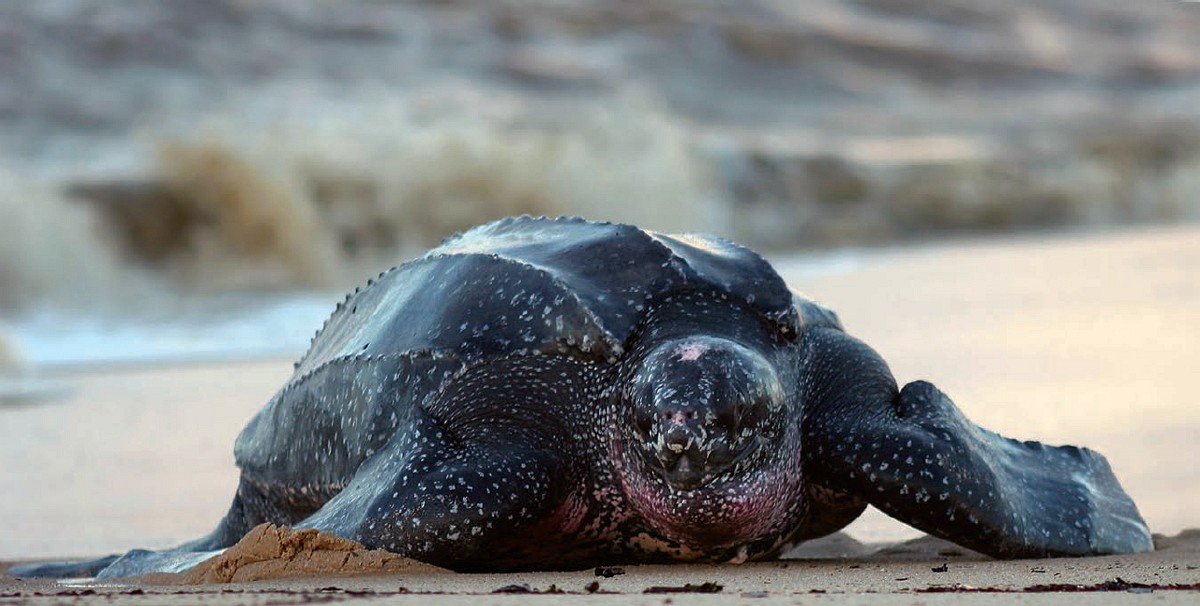
Saving turtles is an important part of Fijis environmental work. The leatherback turtle, shown here, is the largest of the sea turtles, all of which are threatened in Fiji. The leatherback, however, is critically endangered. In 2009, the government set in place the first tenyear moratorium on hunting sea turtles.
Despite its relatively high standing, Fiji faces some serious problems. Among the most important are ethnic relations between iTaukei and Indians, government stability, poverty, and environmental concerns. All of these issues are discussed later in this book.
But Fiji has so many positive things going for itits famously friendly and hospitable people, its natural beauty and abundant resources, and its return to democratic rule in 2016that the future appears to bode well.

